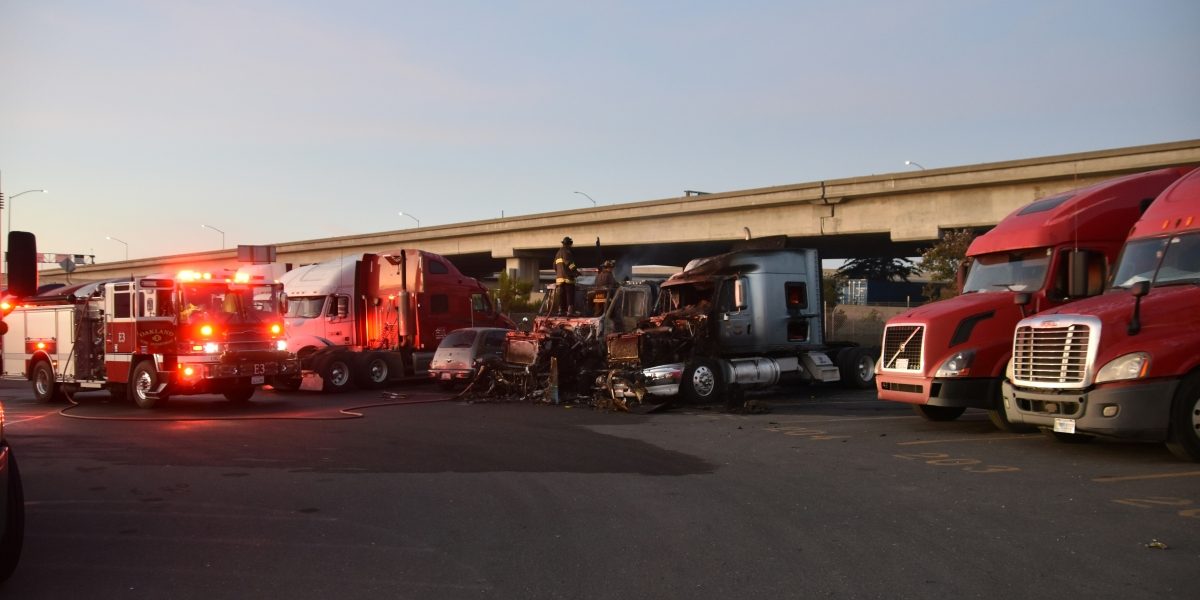Large truck accidents in Georgia occur in both rural and urban areas, but the causes can differ depending on the environment. Georgia’s unique blend of interstate highways, agricultural zones, industrial parks, and growing metro areas creates varying challenges for commercial drivers. By comparing rural and urban crash patterns, it becomes easier to understand how location-specific factors may contribute to accidents involving tractor-trailers, 18-wheelers, and dump trucks.
Rural Road Risks
Rural areas in Georgia often feature two-lane highways, high-speed zones, and limited visibility due to hills or curves. These factors, combined with longer travel distances between towns, can create higher-risk conditions for truck drivers and other vehicles sharing the road.
In many rural accidents, speed appears to be a contributing factor. Truck drivers may be traveling faster due to lighter traffic, unaware of sudden turns, wildlife crossings, or narrow shoulders. Long stretches of road can also lead to fatigue, particularly if the driver is trying to cover long hauls through remote parts of the state. Limited lighting in rural areas further increases the likelihood of a crash after dark.
Agricultural equipment and vehicles turning onto highways from private farm roads or driveways are another concern. These transitions can be unexpected, especially if signage is limited. In some regions, especially in southern Georgia, these conditions can increase the likelihood of rear-end collisions or side-impact crashes involving heavy trucks.
Rural crashes might also involve slower emergency response times. Medical care, fire rescue, or accident investigations may take longer to arrive on scene, which could affect outcomes and the availability of critical data. Recovery operations for overturned or jackknifed trucks may also be more complex due to soft terrain, ditches, or distance from towing services.
For accidents in these areas, some victims might consider consulting professionals familiar with highway crash patterns, such as a Georgia 18-wheeler accident lawyer, who understands the conditions associated with rural freight routes.
Urban Collision Factors
In contrast, urban truck accidents tend to happen at slower speeds but involve more vehicles. Cities like Atlanta, Savannah, Augusta, and Macon have increasing traffic congestion, construction zones, and tighter intersections that can raise the risk of sideswipes, fender benders, and underride collisions.
One of the leading issues in urban environments is limited maneuvering space. Trucks require more room to make wide turns or navigate narrow streets. Pedestrians, cyclists, and delivery vans may create distractions and increase the risk of accidents, especially during morning and evening rush hours.
Stop-and-go traffic also contributes to crashes. Truck drivers might struggle with blind spots or misjudge the timing of lights or merging vehicles. Intersection collisions are often common, and commercial trucks are frequently involved in crashes while making right-hand turns or navigating one-way streets.
In metro areas, construction projects can reroute traffic or place commercial trucks into unfamiliar environments. This can lead to missed turns, sudden lane changes, or confusion about signage. Accidents involving municipal or worksite trucks, like sanitation vehicles or gravel haulers, are also more likely to occur. These cases may involve city-owned or subcontracted dump trucks—some of which could be handled by an Atlanta dump truck accident lawyer.
Other Contributing Factors Across Both Settings
Regardless of location, certain crash causes are common throughout Georgia. These include driver fatigue, distracted driving, improper loading, or mechanical failure. Fatigue may stem from long hours behind the wheel, particularly if drivers are operating under tight delivery schedules. Distractions such as GPS navigation, phones, or dispatch communications can impact reaction time and lane control.
Improper cargo loading is another factor. Trucks that carry unstable loads might be more likely to tip over, especially during turns or emergency maneuvers. Whether on a country road or a city street, poorly balanced trailers can lead to serious outcomes. These types of crashes are often examined by professionals with experience in vehicle inspection records and cargo protocols, such as a Georgia tractor-trailer accident lawyer.
Mechanical issues, including brake failure, worn tires, or faulty lighting, may also contribute to crashes statewide. Georgia requires commercial vehicles to undergo regular inspection, but compliance may vary. Urban trucks might be inspected more frequently due to short-haul schedules, while rural vehicles might travel longer distances between checkpoints.
Final Thoughts
Understanding the difference in crash risks between rural and urban areas helps highlight the broad range of safety challenges on Georgia’s roads. Geography, speed, vehicle type, and traffic density all play roles in how and why truck accidents happen. While every case is different, comparing regional patterns can offer insight into common contributing factors across the state.
Disclaimer: This article is intended for informational purposes only and does not constitute legal advice. The causes and factors mentioned in the article are based on general observations and may not apply to every individual case. For personalized legal advice regarding truck accidents, it is recommended to consult with a licensed attorney familiar with Georgia’s specific laws and regulations. The inclusion of any professional services or legal references in this article does not imply endorsement or a guarantee of results.









